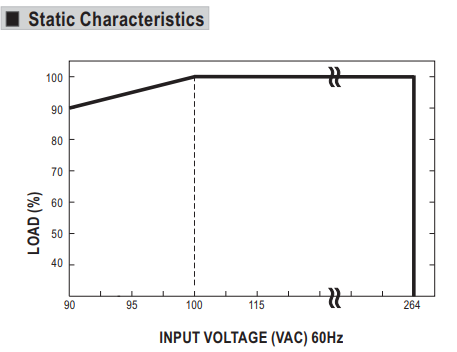I've searched the web and didn't find an answer that suitably answers my query. I have a dc-dc buck / step-down converter. Input range: 72-144 V DC. Output: 5 V 60 A. My question: Is there a difference in output wattage when I use, say, 72 V as opposed to 144 V input? Will I get the full 5 V 60 A (or close, considering efficiency %, etc) when I use a lower recommended input voltage instead of a higher voltage (or vice versa)?
During my research I came across various comments/statements that the input voltage must be as close to the intended output voltage as possible, whether one is boosting/stepping up or bucking/stepping down. Maybe I'm totally confused about what they were meaning. Or I'm misinterpreting it.

